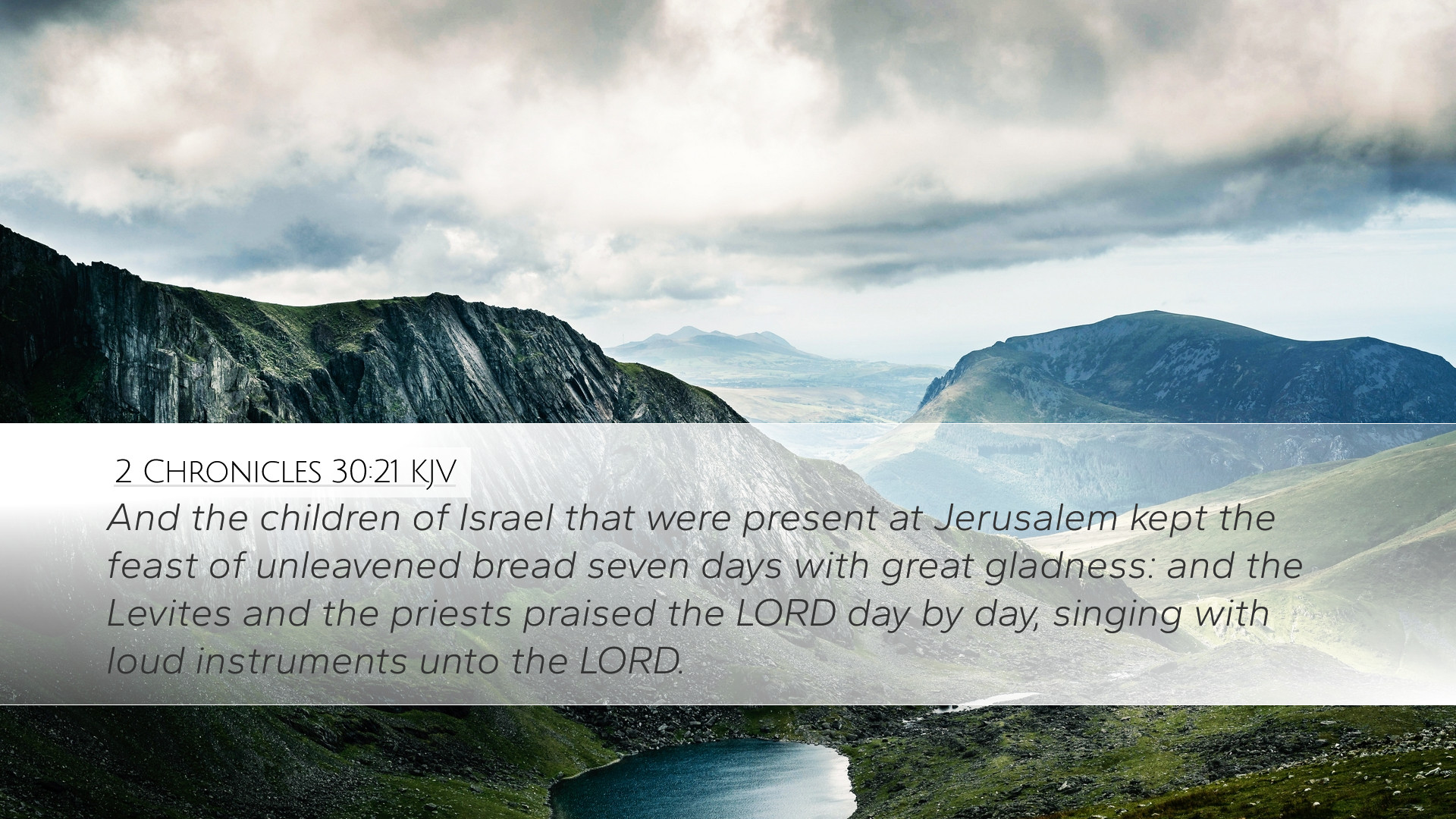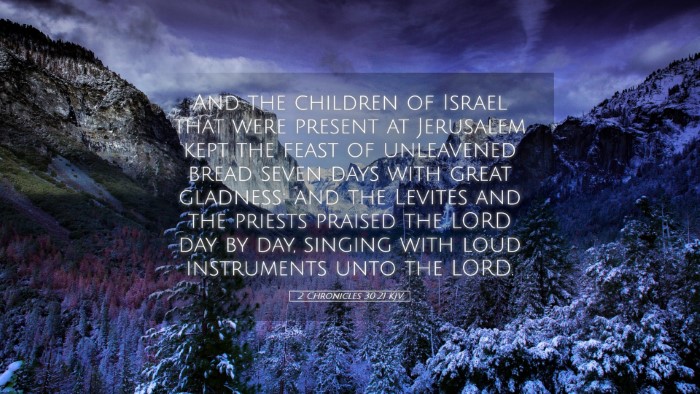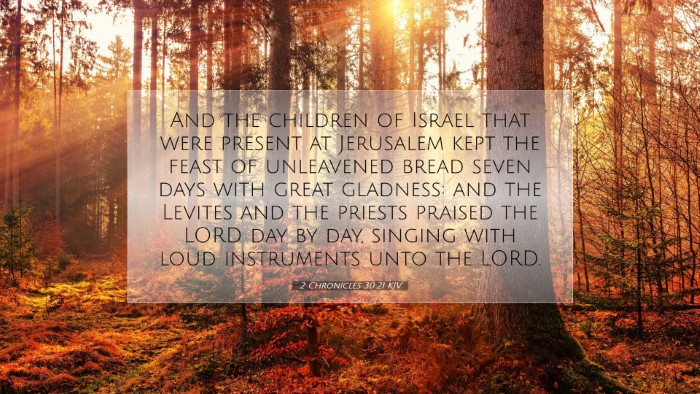Bible Commentary on 2 Chronicles 30:21
Verse Context:
2 Chronicles 30:21 states: "And the children of Israel that were present at Jerusalem kept the feast of unleavened bread seven days with great gladness: and the Levites and the priests praised the LORD day by day, singing with loud instruments unto the LORD."
Introduction
This commentary seeks to provide a theological and practical insight into 2 Chronicles 30:21, illustrating the depth of worship and celebration among the people of Israel as they returned to observe the Feast of Unleavened Bread. The passage is a significant reflection on the themes of repentance, unity, and the centrality of worship in the life of God’s people. The public domain commentaries from Matthew Henry, Albert Barnes, and Adam Clarke will serve as foundational sources for this analysis.
Exegesis of the Text
In understanding this verse, it is essential to consider both its historical context and its theological implications. The immediate backdrop is King Hezekiah's efforts to restore true worship and reunite the divided kingdom of Israel and Judah. This event follows a significant call for repentance and the invitation extended to all of Israel to participate in the Passover.
Hezekiah's Religious Reforms
Hezekiah’s reign marked a departure from the idolatry that had influenced Israel for years. Matthew Henry emphasizes that this observance “is a continuation of the reformation” initiated by the king, where he sought to restore the worship of Yahweh, in contrast to the pagan practices that had led the nation astray.
The Importance of the Feast
The Feast of Unleavened Bread is significant as it commemorates the Israelites' deliverance from Egypt, representing both physical salvation and the spiritual necessity of holiness. Albert Barnes notes that the celebration reflects a return to covenant faithfulness, indicating that the people recognized their dependence on God's grace and mercy.
The Emotional and Spiritual Response
The verse highlights the “great gladness” experienced by the Israelites during the feast. This joy was a response to their restoration and reconciliation with God. Adam Clarke points out that this joyous atmosphere was characterized by “praise” and communal worship, demonstrating the transformative power of divine worship in the life of the community.
Worship as Community
Worship in this context was not an isolated event but a communal experience. The unity of the Levites and priests in praising the Lord signifies that worship is designed to bring the community together in acknowledgment of God's sovereignty and grace. Matthew Henry remarks on the unity of worshippers, stating, “A great number of them had come together; this was a blessing…”
The Role of Leaders in Worship
The involvement of the Levites and priests in leading worship underscores the importance of spiritual leadership in facilitating authentic praise. This serves as a reminder to current church leaders of their crucial role in guiding congregations toward heartfelt worship that glorifies God.
Theological Implications
-
The Need for Repentance:
The celebration was rooted in a significant act of repentance. The Israelites’ return to God is a model for believers today who seek restoration and renewal through confession and faith.
-
The Nature of True Worship:
This passage emphasizes that worship is a joyful response to God’s salvation. Praise that is offered with “loud instruments” signifies an exuberant celebration of God’s goodness and holiness.
-
Community in Worship:
The gathering reinforces the necessity of community participation in collective worship, highlighting that individual faith is complemented by communal expressions of praise and thanks.
Practical Applications for Today
This passage yields valuable insights and practical frameworks for contemporary worship settings:
-
Restoration through Worship:
Churches today should focus on providing environments where restoration through worship is emphasized, calling congregants to embrace grace and reconciliation.
-
Encouraging Joyful Worship:
The enthusiasm expressed in this passage encourages current worship leaders to cultivate joyous experiences that uplift spirits and reflect God’s undeniable mercy.
-
Promoting Unity:
Like the Israelites, modern congregations are reminded of the strength found in unity during worship, challenging divisions and encouraging collective adoration of God.
Conclusion
2 Chronicles 30:21 serves as a powerful testament to the importance of joy, unity, and authentic worship in the life of God’s people. The historical context provided by Hezekiah’s reforms invites believers to reflect on their communal and individual worship practices today. Drawing from the insights of Matthew Henry, Albert Barnes, and Adam Clarke, it is clear that the act of gathering for worship with gladness is crucial for experiencing the fullness of God’s presence, grace, and power.


